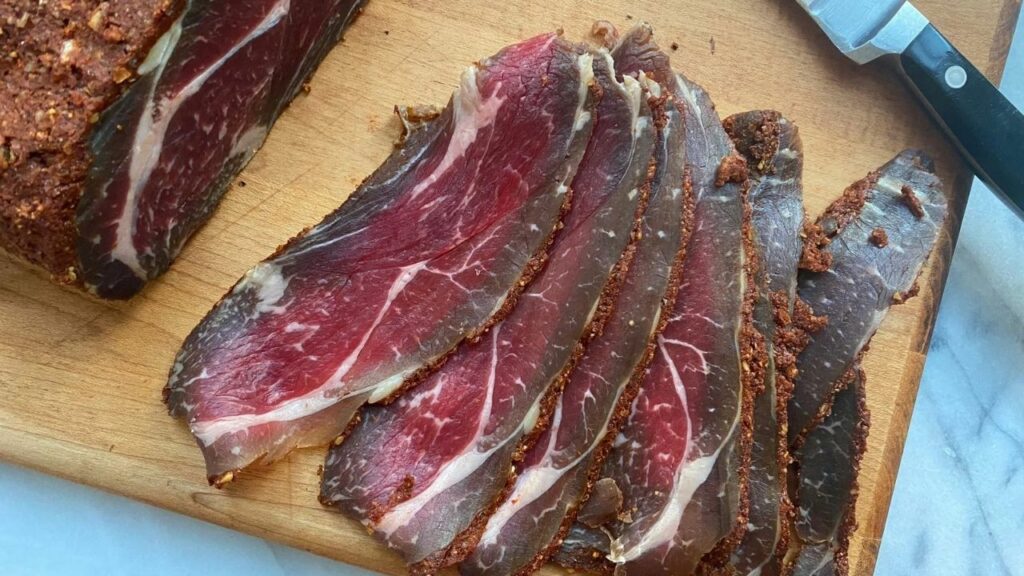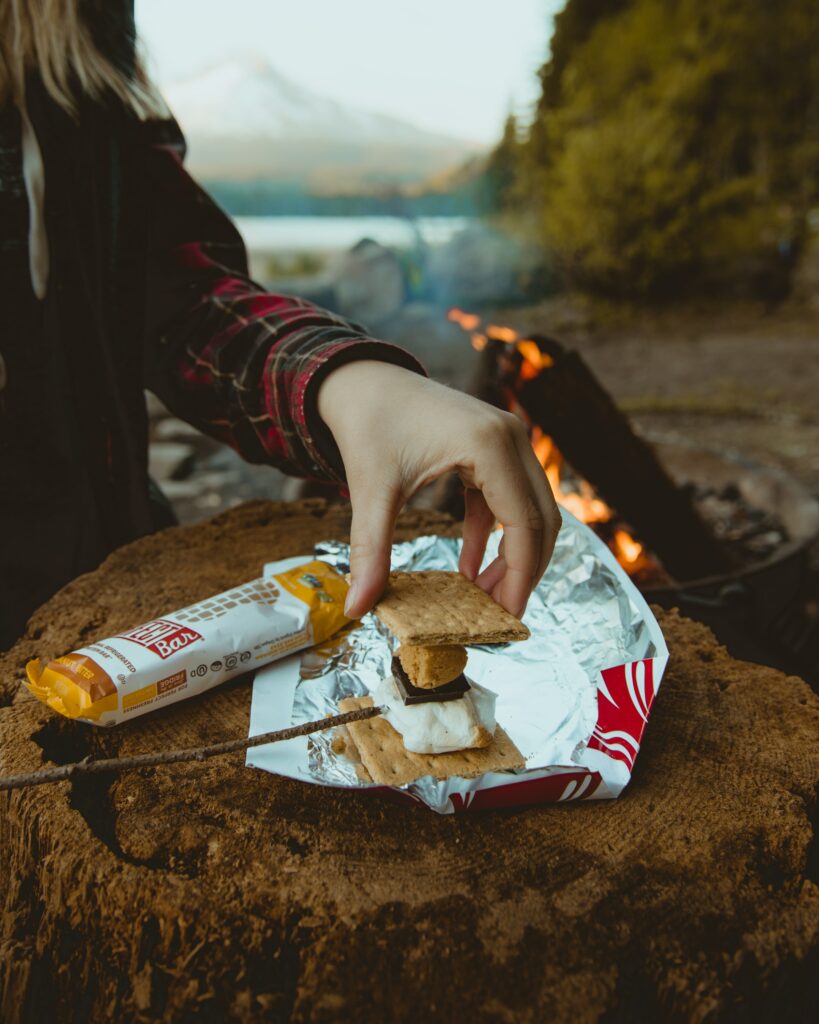You may have gone hiking before, but multi-day hikes are inherently different.
When you’re gone for consecutive days or even weeks at a time, there’s a whole lot that could go wrong, especially food-wise. What if you didn’t prepare enough food? Should you snack while hiking, or is it a bad idea?
If something like that happens to you, don’t worry, many of us have gone through it, including me. It took me some time to learn all the nuances of multi-day hiking trips – what you should pack, what to eat before and after the hike, and so on.
The idea is to find the right balance between the amount of food you need on hand before the next restocking point and the weight on your back. Let’s discuss the preparations in detail.
Ps…I’ll specifically be talking about food in this guide because you already know that you gotta have a proper hydration plan as well to prevent dehydration on long hikes…right?
How to prepare for a multi-day hike?
You should follow two important rules when preparing for a multi-day hike. Fresh food should be consumed first because it’s perishable. You can leave everything else for later. Second, dehydrated food is the key to a good multi-day hike because it weighs less.
The good thing is that preparing food for hiking is much simpler than planning it. Once you know what you need, all the condiments, snacks, and meals can be bought from your local store. As for dehydrated food, you have two options.
- Option 1 – Buy dehydrated foods either online or from a specialized food store. It’s fast and easy, but some people find it expensive so make sure to check different online shops before moving to the second option.
- Option 2 – Dry your food yourself. It’s cost-efficient but takes time and requires some labor.
1. How to prep and pack efficiently?
Don’t try to pull an all-nighter because some foods require several days for proper preparation. So, plan at least a week ahead.
The most important rule when packing for a multi-day hike is to keep an optimal weight. There are tons of food options around, so aim to find the right balance between what weighs less, has an equal amount of carbs, and you’re willing to eat.
One big mistake that I often made was being over efficient. If you just chase for efficiency without caring for your own preferences, you’re not gonna have the best time. Yes, you shouldn’t pack heavy, but don’t prepare something that you wouldn’t want to eat.
Follow these tips:
- Remove all the packaging from your food to shave off some extra weight and pack everything yourself. Ziplock bags are amazing for packing hiking food. They’re light, lock up nicely, and keep everything fresh.
- Things get complicated if you’re a meat-lover because it perishes quickly. So, follow the first rule and consume meat on your first day and every time you restock it. Pack the meat in a ziplock bag wrapped around a cloth and an ice pack (freeze pack) next to it. This will keep the meat fresh.
- All your food items shouldn’t be packed individually. You can pre-mix your meals and pack them together. It’ll make things much easier during the hike.
- Be a nerd. Label each ziplock bag with the name of the food and the day and mealtime you want to consume it. Dividing everything between specific meals will make the food-time easier to follow during the hike.
- Finally, store away fruits and vegetables that don’t perish fast, like apples, carrots, cucumbers, avocados, oranges, limes, and lemon. They can be kept for a couple days. Buy some fruits when they’re “green” or aren’t fully ripe yet. They’ll be delicious to consume after a couple days.
- Don’t forget condiments and spices! They’ll be your friends in making bland food slightly interesting. Boiled rice with a hint of salt goes a long way on hikes.
- Pack instant food like noodles and soups but avoid canned goods. Canned food comes with unnecessary weight; if there’s something you really need, remove the can and put the contents in a ziplock bag.

In short: perishable items like meat and vegetables should be at the top. Preserved meat and stable veggies (like tomatoes) should be in the middle. And dehydrated food and other non-perishable items should be at the bottom.
2. How much food do I need for a multi-day hiking trip?
You should consume approximately 2.2lbs of food per day on hiking trips, including meals and snacks. You’ll need about 3000 to 3500 calories per day, so packing carb and fat-rich diets while maintaining hydration and protein will nourish your adventure.
With this estimation, you’ll need about 6.6lbs of food for a 3-day hike, 11lbs for a 5-day hike, and so on. But what about 10-12 or even 15-20 day hikes? It’d be absurd to recommend carrying 22-44 pounds of food. That’s why there are usually restocking outlets on long hikes, but of course, you’ll want to check beforehand.
Plan to have enough food on hand to last you from one checkpoint to the next restocking point, plus one extra day (in case anything goes wrong).
3. What do you eat on a multi-day hike?
Multi-day hikes are no joke. It can be tricky to choose what to prepare and pack for.
As I said, dehydrated food is the key because water is heavy. Air-dried meat comes in handy in these cases, but you’ll have to get creative if you’re a vegan. Fruits and vegetables won’t give you 3-3.5 kCals with just 1.6-2.2lbs of food.
Personally, there’s nothing better than rice or quinoa for multi-day hiking because it soaks water and expands. You can easily dine on just a tiny amount of rice for 15-20 day hikes. Boil it in some water, sprinkle salt and condiments (like cumins), and viola.
Whole-grain pasta, dried soups, couscous, and pancake mix are good options apart from dehydrated food. I always keep packets of mayo, taco sauce, and hot sauce. PB&J sandwiches and real oats (or any other cereal) paired with dried fruits, powdered milk, and nuts are excellent for breakfast. Cooked rolled oats are better than instant oats because they keep you fuller longer.
What are good hiking snacks?

Always have snacks with you regardless of the hike duration. They’re an excellent source of instant carbs (ENERGY!). Snacks are meant to be eaten during the hike and aren’t considered a part of your “hike meals.”
Some of my favorite hiking snacks are peanut butter pretzels, trail mix, dates, protein bars, beef jerky, and marshmallows (obviously). You can go with anything that provides instant energy without slowing you down. Some people also prefer mixed nuts and granola.
Should you eat before a hike or hike on an empty stomach?
“What should I eat before a strenuous hike?” has always been a cause for concern. Should you eat light or heavy? It becomes an even bigger issue before multi-day hikes because you go through the same dilemma every day.
You should have a carb-rich meal 2-3 hours before your hike to juice up your glycogen levels. It’ll help maintain endurance for a longer time and store energy reserves for the multi-day hike. Never hike on an empty stomach but don’t fill it 100% either.
Pre-hydrating yourself is very important. As for food, you can go with anything I mentioned before for a hardy hiking breakfast.
After the hike: Replenishing your energy after the hike is just as crucial as your breakfast. The first step is to rehydrate your body. Next, you should eat carbs and digestible protein within 20-30 minutes of the hike. Consider whole-grain food, curds and yogurts paired with berries and dry fruits, and coconut water for your after-hike meal.
Food Safety Tips for Multi-Day Hikes
- Always keep soaps, disinfectant wipes, or hand sanitizers with you. Your hands will be filled with germs, don’t eat without cleaning them. You’d be surprised how many people forget to plan for this.
- Keep portable water filters or water purification tablets with you. Yes, some places have clean water, but there’s no harm in preparing for the worst.
- Keep proper and clean utensils (bowls, plates, cooking pots, etc.) – pack more efficiently if they’re heavy but don’t skip any essentials.
- Always keep multiple ziplock bags with you for a multi-day hike so you can meal prep when you restock. Also, have some trash bags and ice packs for waste and meat, respectively.
Trust me, I’ve had some fantastic hiking adventures, and some not so much. I’d say from experience that it’s always a good idea to prepare and pack appropriately. Don’t be Bear Grylls.

